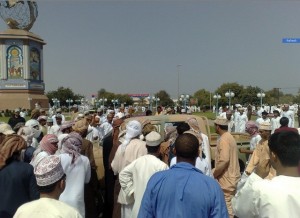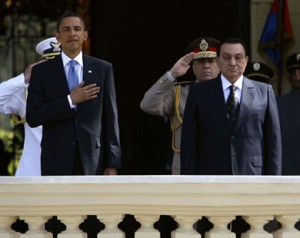C O N F I D E N T I A L SECTION 01 OF 02 RIYADH 001166
SIPDIS
NSC FOR BROWN, TREASURY FOR GLASER, DHS FOR WARRICK,
CENTCOM FOR POLAD GFOELLER
E.O. 12958: DECL: 09/08/2019
TAGS: PREL PGOV PTER KTFN EFIN SA PK
SUBJECT: FORMER TERRORIST SAYS AL-QAEDA LACKS FINANCING
REF: A. RIYADH 1110 B. RIYADH 1121 C. RIYADH 1151
Classified By: CDA Ambassador Richard Erdman for reasons 1.4 (B) and (D )
SUMMARY
——-
¶1. (C) In a September 6 interview with liberal daily Al-Watan, former Al-Qaeda fighter Fawaz Al-Otaibi, whose surrender to Saudi authorities was announced on September 2, said that Al-Qaeda was in a “”catastrophic financial situation”” — thanks in part to strict measures aimed at cutting off the flow of terrorist financing — and was now directing its efforts towards recruiting Arab youths to perform suicide operations in their home countries. Commenting on Otaibi and the concept of Jihad in general, Al-Watan editor and former Osama bin Laden confidant, Jamal Kashoggi, told us the concept of jihadism is a key tenet of Islam; it will not go away, but we should work to channel the concept into a state context, where decisions concerning the duty to wage jihad must rest with the state rather than the individual. In related news, the Ministry of Social Affairs announced plans to institute quarterly reviews of charities to prevent “”financial misconduct,”” including direction of charitable fund to terrorist activities. END SUMMARY.
AL-OTAIBI’S SURRENDER MADE PUBLIC
———————————
¶2. (U) On September 2, the MOI announced that Fawaz Al-Otaibi, a Saudi on the 85 most wanted list, had surrendered to authorities. The announcement came less than a week after the failed suicide attack on Assistant Interior Minister Prince Mohammed bin Naif (reftels), and gave no indication of how long Otaibi had been in custody. The report said he had been reunited with his family and allowed to perform Umrah. Prior to his surrender, Al-Otaibi reportedly called his parents and told them he wanted to return to Saudi Arabia and hand himself in. He had left the Kingdom approximately 1 year ago for the UAE, and his last known location prior to surrendering was reportedly Iran.
¶3. (U) In a Saudi Gazette interview published September 6, Otaibi’s mother claimed her son had been dreaming of Jihad since his teens. He told his family he was being transferred to a national guard post in Tabuk, said farewell, and later called his brothers, telling them “”he was in Pakistan for Jihad,”” she added. She claimed to have noticed no change in his behavior; that he had finished secondary school and married; and that prior to his sudden departure she had assumed he led “”a normal life.”” In his final phone calls to family members prior to his surrender, he said he “”regretted leaving the Kingdom”” and “”didn’t find the jihad he had hoped for.”” Otaibi surrendered to the Saudi Embassy in Pakistan and has been held at the Al-Haier prison in Riyadh since his capture.
AL-QAEDA FRUSTRATED, LACKS FUNDS
——————————-
¶4. (U) On September 6, Otaibi spoke out about his experiences in an interview with influential daily Al-Watan. The main points of the interview follow:
¶5. (U) FINANCIAL RESOURCES DRYING UP: Measures aimed at cutting off the flow of money to Al-Qaeda, including efforts to control money channeled through suspicious charitable organizations, had forced Al-Qaeda into a “”catastrophic financial situation.”” As a result, Al-Qaeda was reducing its fighters abroad and relying on experienced local veterans. Individual cell leaders were beginning to turn interested recruits away, citing insufficient resources.
¶6. (U) REHABILITATION PROGRAMS IRK AL-QAEDA: The Al-Qaeda camp in Waziristan, which Otaibi joined in September of last year, had been populated by many frustrated young Arabs- especially Saudis, Egyptians, Libyans and Yemenis. However, many decided to return to their home countries when they endorsed policies that invited them to return and repent. Otaibi suggested Al-Qaeda was annoyed by countries that adopted these policies successfully, most notably Saudi Arabia.
RIYADH 00001166 002 OF 002
¶7. (U) TARGETED RECRUITING FOR HOME COUNTRY OPERATIONS: Otaibi said the recruitment process targeted very few people, for both psychological and moral reasons. Some Afghan fighters believe fighting beside Arabs gives them God’s blessing, but Al-Qaeda leaders preferred to limit the numbers of Arab fighters. Current efforts were focused on recruiting youths to carry out terrorist operations in their home countries. In fact, newly recruited foreign fighters were not allowed to participate on the front in Afghanistan, but were instead asked to join suicide bombing groups targeting Saudi Arabia, other GCC countries, and elsewhere.
AL-WATAN’S EDITOR ON AL-OTAIBI, EXTREMISM
—————————————-
¶8. (C) Jamal Kashoggi, editor of the influential daily Al-Watan, told Charge at a September 3 Iftar dinner that he had had an opportunity to interview Al-Otaibi in his home before the arranged time for turning himself in. The interview, he said, had been relatively short and he was hoping to have another opportunity to meet with Otaibi for a longer interview. Kashoggi, self-described as coming from a very fundamentalist family once but no longer associated with the Muslim Brotherhood, was a friend of Osama bin Laden in his younger days, as he was beginning his ideological journey into violent jihadism. (Kashoggi is frequently quoted in “”The Looming Tower”” as a source on Osama bin Laden, his character, and personality.) At the September 3 dinner, Kashoggi said we needed to come to grips with the fact that jihadism IS part and parcel of Islam. Pretending that it isn’t is a delusion. The way to reconcile this reality with the need for a peaceful social order and stability was to make clear to the Muslim community that the decision to wage jihad resided not with individuals, but with the leader of the State- in this case, the Custodian of the Two Holy Mosques.
NEW QUARTERLY REVIEWS OF SAUDI CHARITIES
—————————————-
¶9. (U) In related news, Deputy Minister of Social Affairs Abdullah Al-Yousef announced on September 4 plans to conduct quarterly reviews of the financial accounts of charities across the Kingdom. Auditors will be expected to inform the ministry of any financial misconduct, and “”the ministry will act according to the violation of charity regulations.”” These new measures indicate, in part, continuing Saudi efforts to stem the flow of terrorist financing.
ERDMAN “





























